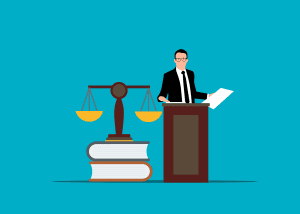Estate planning might not be the first thing on your mind, but it’s one of the most important steps you can take to secure your future and protect your loved ones. Have you thought about what would happen to your assets, business, or even your children if something unexpected occurred? It’s not a pleasant scenario to imagine, but planning ahead is the best way to ensure everything is handled exactly how you want. Here’s where estate planning lawyers step in to make the process less daunting and much more manageable.
What Does Estate Planning Actually Involve?
Estate planning goes beyond simply writing a will. It’s about creating a comprehensive roadmap for your assets, healthcare preferences, and overall legacy. This could include:
- Wills and Trusts – These ensure your assets are distributed according to your wishes.
- Power of Attorney – A designated person to manage your finances or legal matters if you’re unable to do so.
- Advance Directives – Your healthcare preferences outlined in case you’re incapacitated.
- Tax Planning – Strategies to minimise taxes for your heirs.
- Guardianship Arrangements – Plans for minor children or dependents.
When you look at this list, it’s clear there’s more to estate planning than just picking beneficiaries. But don’t let that overwhelm you—lawyers specialising in this area can simplify every step.
Why Is an Estate Planning Lawyer Essential?
It’s tempting to think, “I can just use a template online.” However, one size doesn’t fit all when it comes to something as personal and detailed as your estate. Laws around estates and inheritance vary by region, and the smallest mistake can lead to costly consequences for your family.
Estate planning lawyers bring expertise and a personalised touch. They’ll listen to your unique circumstances, guide you through legal requirements, and ensure your documents are ironclad.
For instance, they’ll:
- Help you identify all your assets, even ones you might overlook, like digital accounts.
- Ensure your plans align with local laws to avoid disputes later.
- Structure your will or trust to protect your heirs from unnecessary taxes or legal headaches.
Without their expertise, you might unknowingly leave gaps in your plan that could create confusion or conflict.
Making Sense of Legal Jargon
Does legal terminology leave you scratching your head? You’re not alone. Lawyers help cut through the jargon and explain everything in plain language so you fully understand your decisions. Whether it’s the difference between a revocable and irrevocable trust or what “probate” actually means, they’ll make sure you’re never in the dark.
Here’s an example: Probate is the process of validating a will and distributing assets through the court. While it’s not always avoidable, a lawyer can help you set up mechanisms to minimise its impact, saving time and money for your beneficiaries.
Personalising Your Estate Plan
No two estate plans are the same because no two lives are the same. A lawyer ensures your plan reflects your unique situation, values, and goals. For instance:
- If you own a business, they’ll help you create a succession plan to keep operations smooth.
- If you have a blended family, they’ll help balance fair distributions among loved ones.
- If you’re passionate about philanthropy, they can include charitable donations in your plan.
It’s not just about what happens after you’re gone; it’s about ensuring peace of mind while you’re here.
Keeping Things Up to Date
Did you know that estate plans aren’t a set-and-forget task? Life changes—marriages, divorces, new children, or even shifts in financial circumstances mean your plan should evolve too. Lawyers can help you revisit and revise your documents to reflect your current wishes.
Imagine this: You create a will in your 30s, but by the time you’re 50, your family dynamics or asset portfolio have completely changed. Without updating your plan, it might no longer align with your intentions. An estate planning lawyer keeps everything current so there’s no room for outdated assumptions.
Avoiding Common Pitfalls
When DIYing an estate plan, people often make mistakes that could cost their families dearly. Missing signatures, unclear wording, or failure to account for taxes are just a few examples. These errors can lead to disputes, delays, or assets being distributed in unintended ways.
Lawyers help you avoid these pitfalls by carefully drafting, reviewing, and filing your documents. They anticipate potential issues and address them upfront, saving your loved ones unnecessary stress.
Building Trust with Your Lawyer
Working with an estate planning lawyer isn’t a one-time transaction—it’s an ongoing relationship. As your circumstances change, they’ll be there to guide you. Choosing a lawyer you trust and feel comfortable with is key.
A good lawyer will listen to your concerns, answer your questions, and provide clear guidance without making you feel rushed or pressured. They’re not just there to draft documents; they’re there to empower you with knowledge and confidence in your plan.
Why Procrastination Isn’t Your Friend
If you’ve been putting off estate planning, you’re not alone. Many people avoid it because it feels overwhelming or they think it’s something to handle “later.” But here’s the reality: later isn’t guaranteed. The sooner you start, the more control you have over your future.
An estate planning lawyer can turn what feels like a monumental task into a straightforward process. They’ll break everything down step by step, so you’re never left guessing what to do next.
Peace of Mind for You and Your Family
The ultimate goal of estate planning is peace of mind—for you and your loved ones. By working with a lawyer, you’re ensuring that your wishes are respected, your assets are protected, and your family is taken care of. That’s a priceless gift.
So, ask yourself: What legacy do you want to leave behind? If you’re ready to take the first step, an estate planning lawyer is your greatest ally in making it happen.

